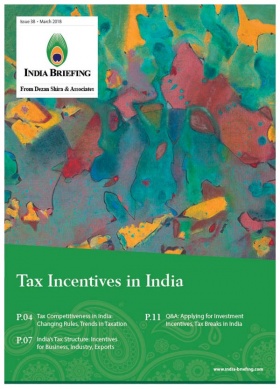GST Audit in India Begins for FY2018: What Should Businesses Know
We write about key documents and compliance requirements that businesses should prepare as the first GST audit in India gets underway.
India Mandates Financial, Secretarial Audit for Private Firms with Outstanding Debt
From FY 2020-21, private firms with outstanding debt of INR 1 billion or more are mandated to conduct secretarial and financial audits.
Filing Late Tax Returns in India: Penalty and Deadline for AY 2019-20
Taxpayers in India who missed their deadline to file taxes are advised to file their tax returns by December 31, 2019 to avoid harsher penalties.
Advance Income Tax in India
Any person in India, whose estimated tax liability is more than Rs 10,000 (US$145) in a financial year, after deducting TDS, must pay income tax in advance.
India’s Tax Cut – Corporate Rates Slashed to Encourage Investment, Revitalize Economy
India just slashed its corporate tax rate by almost 10 percentage points as Prime Minister Narendra Modi’s government seeks to boost investor sentiment in the country.
Register Your Business for the GST in India
GST registration enables goods and service providers to collect GST from their customers. In this article, we enumerate the rules and regulations for registering under GST, as well as penalties for noncompliance.
Income Tax Return Forms in India
Learn about the new income tax returns (ITR) forms for financial year (FY) 2018-19 and assessment year (AY) 2019-20 as well as their applicability.
India Income Tax Calculator for AY 2019-20
The last date for filing income tax returns for FY 2018-19 (AY 2019-20) is August 31, 2019. Use our income tax calculator to determine your tax obligations in India.














